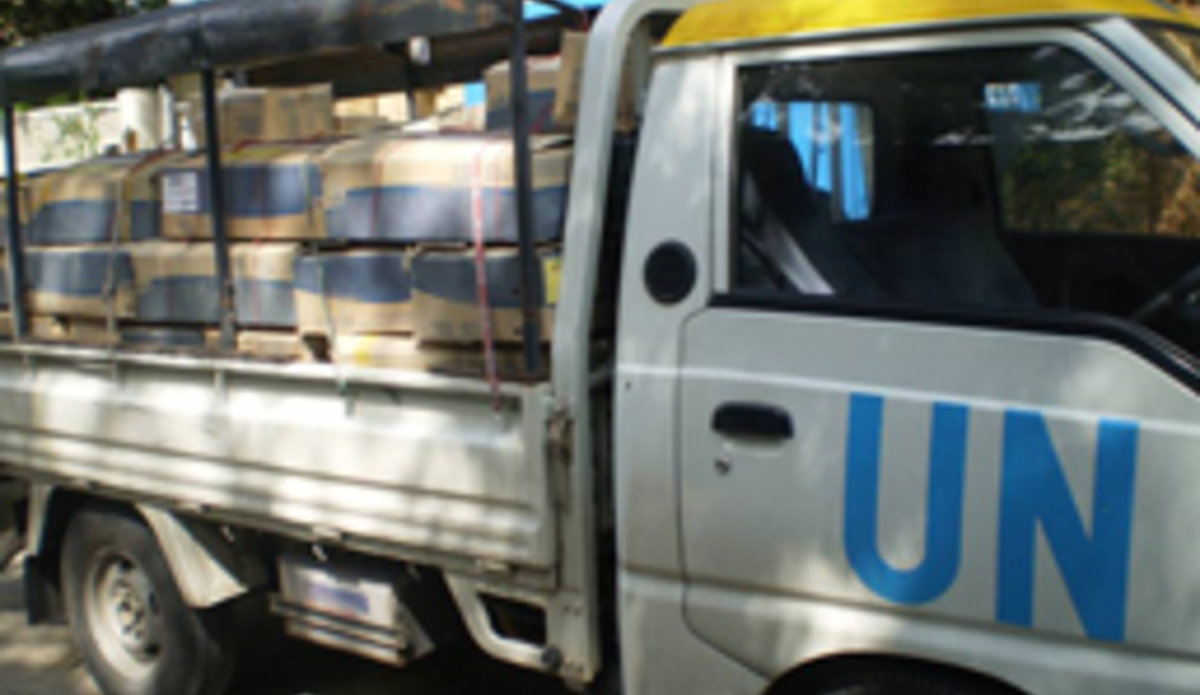Afghanistan speeds medical assistance to flood-hit Pakistan
4 October 2010 - As survivors of Pakistan's floods continue to face growing health problems, the World Health Organization in Afghanistan rushed emergency medical aid earlier today targeted for Pakistanis living in the worst-affected areas of the country.
The over 1200 kilogram-weighing dispatch airlifted on a UN charter aircraft bound for Islamabad contained 160,000 Rapid Diagnostic Tests that will be used to diagnose malaria - a potentially lethal disease - in flood victims on-site. Receding flood waters, especially in endemic areas, provide a breeding ground for malaria at a time when diagnostic capacity is affected. In such cases, RDTs (sometimes called "dipsticks") are an alternative to diagnosis based on clinical grounds or microscopy, particularly where good quality microscopy services cannot be readily provided.
"These life-saving medical supplies are meant to reach communities - especially children and (pregnant) women - worst-hit by the continuing crisis in neighboring Pakistan," said Peter Graaff, Representative of WHO in Afghanistan. "In addition, we deployed a number of our health experts specializing in early detection and response to disease outbreaks, among other areas of public health expertise that are most urgently needed by our colleagues in Pakistan."
"This act of solidarity will not hinder our ability to respond to potential and ongoing disasters on home soil. We stand ready to address health needs of not only the Afghan people but also those of our flood-stricken neighbors," he added.
Urgent health needs
"The cross-border assistance extended to us by the World Health Organization and the Ministry of Public Health in Afghanistan has been crucial in this critical moment of emergency and proved to be very timely and effective in addressing the ever-growing risk of communicable diseases, particularly malaria," said Guido Sabatinelli, WHO Representative in Pakistan. "Colleagues and emergency medical supplies sent across from Kabul are now operating in some of the most vulnerable districts of Sindh and Punjab."
Pressing health needs in Pakistan include improving access to health care for the more than 18 million people affected by the flood emergency, including the 8 million in direct need of humanitarian assistance, monitoring and controlling water-borne and vector-borne diseases, providing enough medicines and related supplies are available to meet health demands, and ensuring coordination of the health sector response is strong and effective.
 UN
UN







